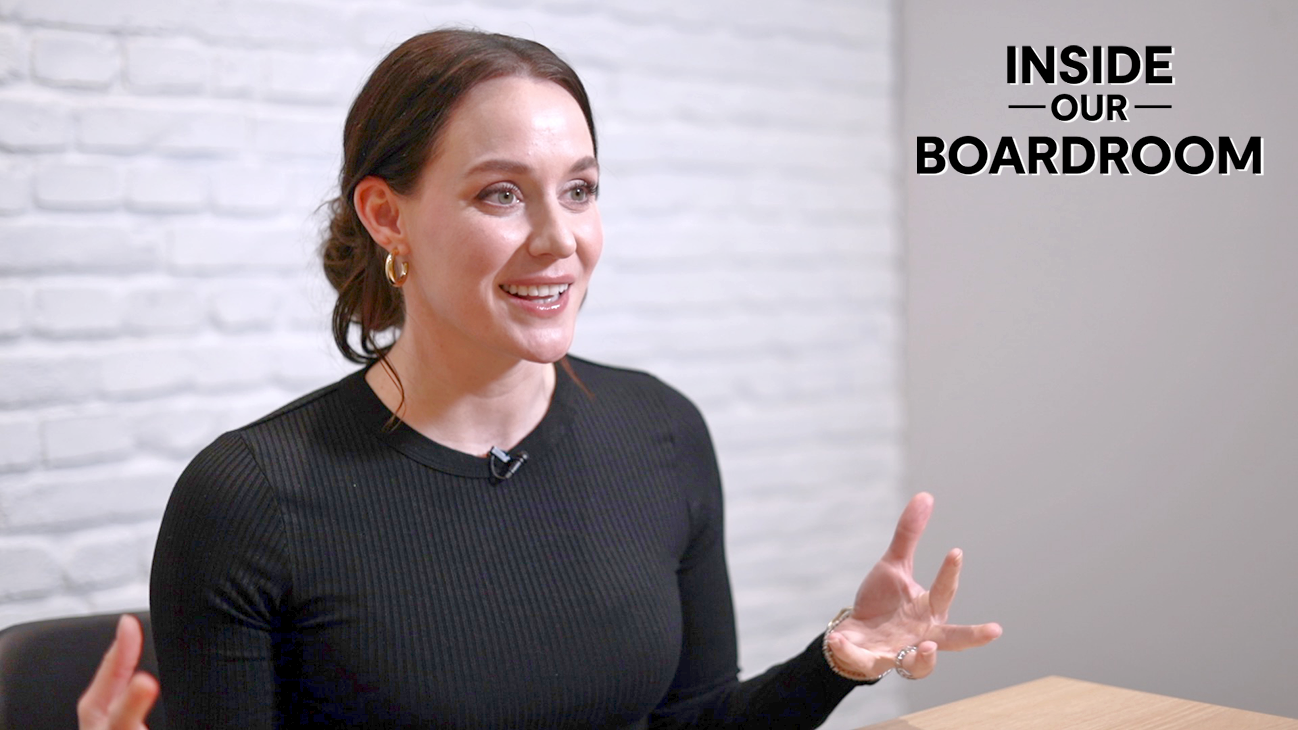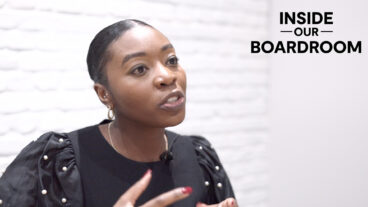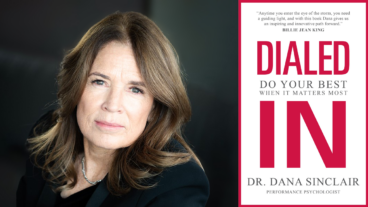Tessa Virtue is one of the most decorated figure skaters in Olympic history. She skated into the hearts of people worldwide when she became the youngest ice dance champion in Olympic history at the 2010 games alongside her on-ice partner, Scott Moir.
Since retiring from skating in 2019, Tessa earned her MBA from the Smith School of Business and Master of Applied Positive Psychology from the University of Pennsylvania. She now works as an executive advisor with Deloitte, where she helps the firm’s senior leaders and clients unlock potential and empower sustained high performance.
Tessa recently joined Inside Our Boardroom, where she shared insight into her life after sport and why she chose to study positive psychology. She also shares how she now helps people employ positive psychology to sustain high performance, drawing on both her lived and academic experience.
Answers have been edited for length and clarity.
The Impact of Positive Psychology on Performance
Speakers Spotlight: How did your Olympic background influence your choice to study positive psychology?
Tessa Virtue: I feel so fortunate that throughout the course of my 22-year career as a figure skater, I was exposed to incredible experts in sports psychology, mental preparation, even marriage counseling. And through this and my lived experience, I got a sense of the importance of mental fortitude and how that shows up in the key moments that matter.
So, it only made sense for me to recalibrate those experiences and ground them in science, research, and data by earning my Master of Applied Positive Psychology. It’s one thing for me to say, I did these things, it’s another to say, I did these and here’s why they worked for me. Here’s why they served me when times were tough. Here’s why I could tap into real-time resilience when I felt self-doubt as I was taking the ice at an Olympic Games.
It’s nice to have all of that rooted in academia to not only credentialize my experience, but to also make it relatable and ensure it resonates with a broader audience.
Hear more from Tessa about why she was attracted to positive psychology following her Olympic career in the video below:
SpSp: What role does positive psychology play in our professional lives?
TV: Learning about the science of well-being was actually so much more connected to sustained high performance than I ever imagined. I think about the power of our relationships. I think about the importance of finding meaning and purpose in our lives. I think about resilience and having tools and strategies to ensure that we’re at our best when times are tough. There’s so much about positive psychology that goes beyond the fluff.
At first glance it can seem sort of trite and yet it’s rooted in everything that we do. It’s the way we show up for one another. It’s the way that we become our best selves. It’s the way that we connect to something that really means something to us. Positive psychology at its core is about human flourishing and there’s nothing that excites me more than the idea of people thriving.
So much of our work and so much of psychology is based on, how do I get from minus three to zero and how does zero become status quo? Well, positive psychology thinks about going from zero to plus three and those are the difference makers, those marginal gains that empower people to feel energized, focused, motivated, connected. It empowers people to unleash who they truly are and that’s such a gift.
Learn more about the role positive psychology plays in both our personal and professional lives:
An Olympian’s Performance Strategies
SpSp: What strategies can you share about performing at your best?
TV: There’s so much I learned as an athlete that has become ingrained in my everyday operating methods. Things like visualizing, controlling the mental chatter, managing and seeking out pressure and stress, knowing that some ideal version of competence and pressure actually unlocks the level of performance that we’re often striving for.
Managing burnout is one of the critical factors that is so prevalent right now. People are run down and overworked. So much about the way we consistently manage our time and energy are not in line with those quick fixes we see out there. Instead, we should be asking how we can consistently take care of ourselves, in a sustainable way, where, over time, we can make sure that we’re performing at our best. Often that requires some level of coaching, some level of reflection, and some level of accountability.
Hear more from Tessa about sustaining high performance in the video below:
Speakers Spotlight: What lessons from your athletic career help guide you today?
TV: I think my career as an athlete has given me a recipe for success. It’s not a quick fix, but it’s a formula that includes an extraordinary amount of work, a clear purpose, an understanding of the moving parts of a team and leadership, and the very notion of delayed gratification.
So, much of what I was working towards in sport was coming to fruition 8-12 years down the road. Every four years, the general public would see us standing on a podium wearing sequins and smiling and holding medals, and that is so special to share with the country, and yet there is so much that went on behind the scenes, so much heartache and pain and frustration and disappointment. My career was built on a mountain of failure, and it was the way that I learned to reframe those moments of growth and opportunity as potential for improvement, that’s what gave me a competitive advantage.
Tessa reflects more on lessons learned from her incredible career in sport in the video below:
On Women Empowerment and Being a Role Model
SpSp: How do you approach your position of being a role model?
TV: It’s such a delightful responsibility to be given a platform and to be given the opportunity to hopefully have some small bit of influence on people, especially young girls. We know that visibility for women is important. Young girls need to grow up seeing what is possible, knowing that anything is possible for them.
I was so privileged to have had so many incredible role models that were strong and independent and supportive and changed the narrative that there’s only so much room at the top for women. That’s simply not true. And the more that we break those barriers, the more that we promote women, the more that we celebrate female creativity and leadership, especially right now, the better we are as a society.
Everything I do is rooted in trying to empower and inspire and ensure that young girls feel the way that I did growing up, which was limitless.
Tessa has always been a strong advocate for female empowerment. She reflects more about the honour of being a role model for so many young athletes in the video below:
Book Tessa Virtue to Speak at Your Event
As a keynote speaker, Tessa Virtue translates her learning and experience as a world-class, high-performance athlete to the corporate world. She draws on her first-hand experience as a three-time gold medalist and combines this with her academic and professional background in positive psychology to helps today’s leaders and top executives sustain high performance.
Contact us to learn more about Tessa and how to book her for your next event.




